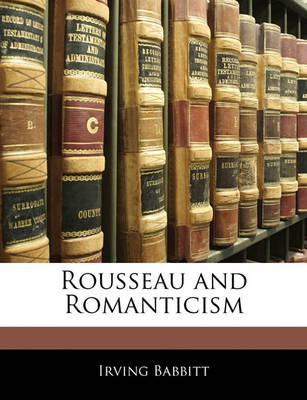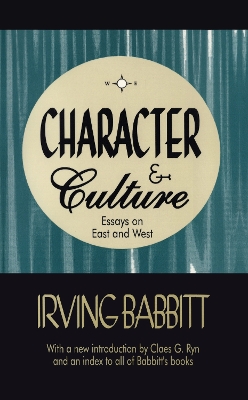The Library of Conservative Thought
2 total works
This volume is the best-known and most widely discussed work of the influential scholar and critic Irving Babbitt (1865-1933), intellectual leader of the movement known as the New Humanism. It is also the work that best conveys the ethical and aesthetic core of his thought. Broad in scope, it examines a variety of manifestations of romanticism and presents a typology of the imaginative inclinations of that movement Rousseau is analyzed as paradigmatic of the ethical and aesthetic sensibility that is replacing the classical and Christian outlook in the Western world. For Babbitt, works of imagination are integral to human life in general. He explores romanticism with a view to its implications for Western civilization.
Babbitt identifies serious ethical, religious, aesthetic, and philosophical problems in the modern world, but he also shows how remedies to those problems must incorporate the best insights of modernity. First published in 1919, the book is strikingly relevant to today's discussion of the crisis of American and Western culture and education. Babbitt anticipated and analyzed dangerous cultural trends whose consequences are now widely bemoaned. He applies to these phenomena an intellectual breadth and depth rare today. At the end of the twentieth century his prescriptions for dealing with the central problems of Western civilization have acquired an acute urgency. At a time of much renewed interest in Rousseau, Babbitt's book offers a penetrating commentary that challenges widely held beliefs and interpretations.
Graced with a lengthy and wide-ranging new introduction by Claes G. Ryn, Rousseau and Romanticism is simultaneously a work of literary history, criticism, and a theory of civilization. In addressing its special subject, this classic study reflects the main themes of Babbitt's thought, making it representative of his work as a whole. Ryn explicates and critically assesses Babbitt's central ideas, refutes widely circulating misinterpretations, and demonstrates the relevance of his writing in the intellectual and cultural circumstances of today.

